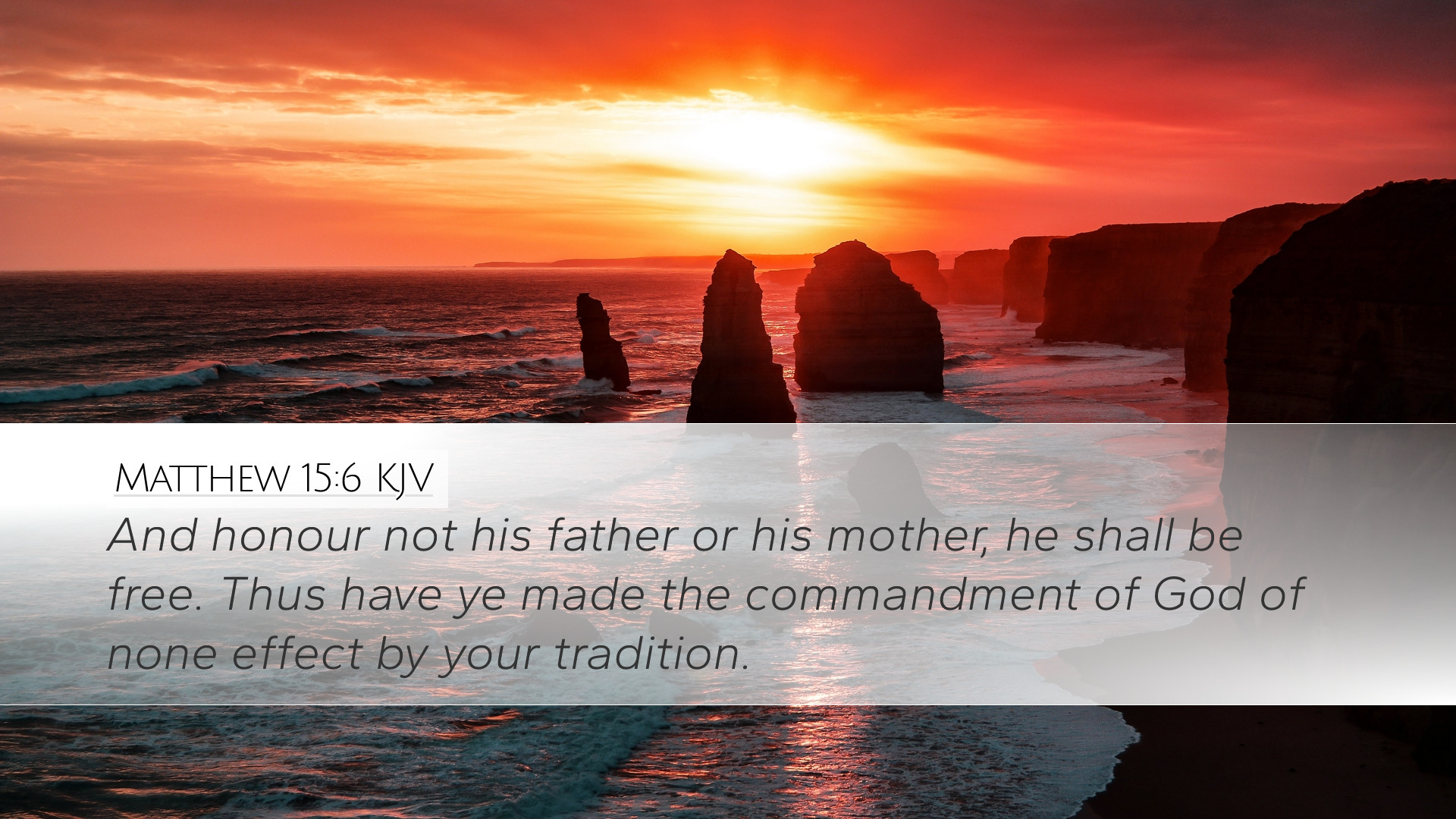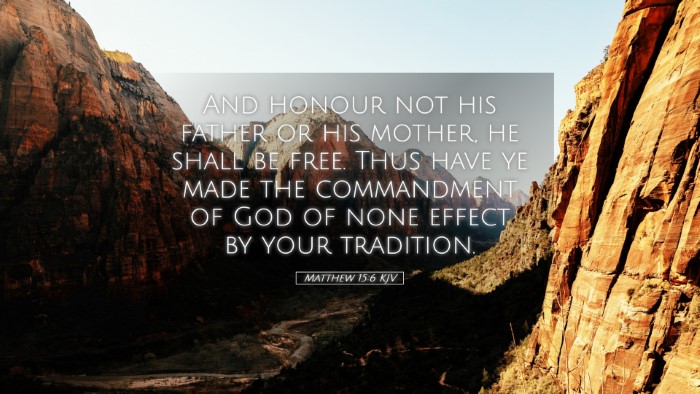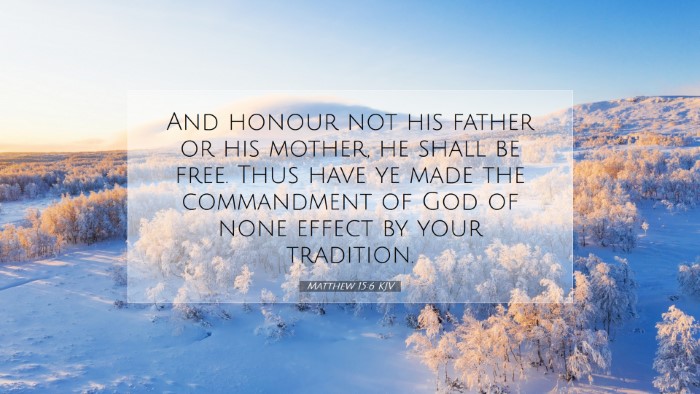Matthew 15:6 - Contextual Overview
Matthew 15:6 is located within a discourse regarding the traditions of the Pharisees and the true spirit of the Law. This verse highlights the conflict between human traditions and divine commandment. The verse itself states, “Thus, you have made the commandment of God of no effect by your tradition.” This critical teaching serves as a focal point for understanding how traditions can at times overshadow the intent of God's commandments.
Exegesis of Matthew 15:6
Matthew Henry observes that the Pharisees and scribes had elevated their traditions to a place of authority, effectively nullifying God's commandments. He notes that the concept of 'Corban'—a gift dedicated to God—was misused to avoid obligations to one’s parents. This self-serving interpretation of the Law reveals a significant deviation from the intent of the Scriptures.
Albert Barnes further elaborates on this by emphasizing the hypocrisy of the religious leaders. He points out the irony in their practice, which allowed individuals to escape moral duties under the guise of religious adherence. Barnes argues that such traditions become more about maintaining power than fostering genuine piety.
Adam Clarke suggests that the principle at stake is the priority of God’s statutes over human traditions. He stresses that nothing should take precedence over the commandments given by God, and when such prioritization falters, it leads to a dilution of faith and obedience.
The Theological Significance
Understanding Matthew 15:6 involves recognizing the broader implications of tradition versus commandment. The verse serves as a reminder of the potential pitfalls of religious legalism, where rites and rituals become substitutes for true faith and moral responsibility.
- Tradition vs. Commandment: This dichotomy is central to the passage, prompting a re-examination of how traditions are established and their impact on spiritual integrity.
- Hypocrisy in Practice: The actions of the Pharisees embody a critical warning against justifying one’s behavior through superficial adherence to tradition.
- Authority of Scripture: The necessity of prioritizing God’s commands over human-made doctrines is reiterated; otherwise, the essence of faith is compromised.
Practical Applications for Pastors and Theologians
Biblical leaders are called to examine their own traditions and practices, ensuring that they do not contradict or undermine the core teachings of Scripture.
- Self-Reflection: Pastors should consider how church traditions may be influencing the interpretation of Scripture within their congregations. Are these traditions enriching the faith, or do they serve as barriers to the Gospel?
- Teaching the True Intent of the Law: Emphasis should be placed on the spirit of the Law versus mere compliance, promoting heartfelt obedience to God’s commands.
- Encouraging Discussions on Tradition: Engaging congregations in discussions about the role of tradition can highlight the importance of aligning these practices with the principles of Scripture.
Conclusion
Matthew 15:6 stands as a profound indictment of the tendency to allow human customs to overshadow divine revelation. Through the combined insights of Henry, Barnes, and Clarke, the urgency to reaffirm the supremacy of God's Word in Christian life and practice is clear. This passage encourages all believers—pastors, students, theologians, and scholars alike—to critically evaluate their beliefs and practices in light of Scripture, ensuring that the truth of God remains central in all aspects of faith.


